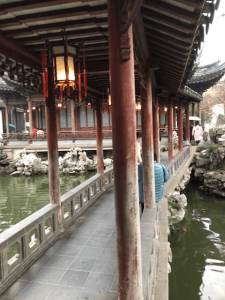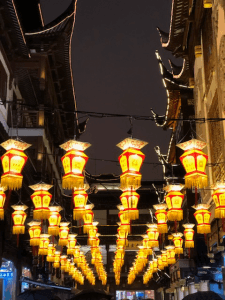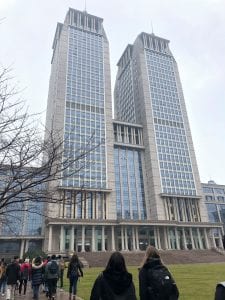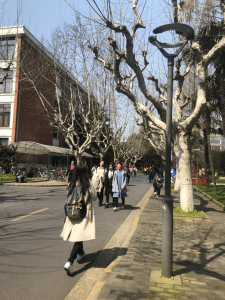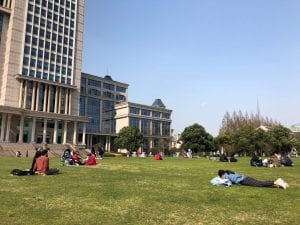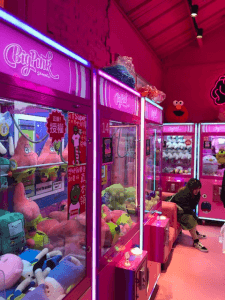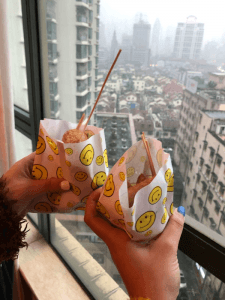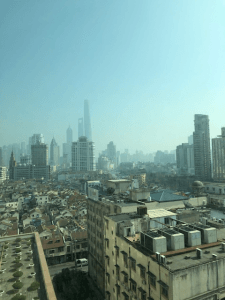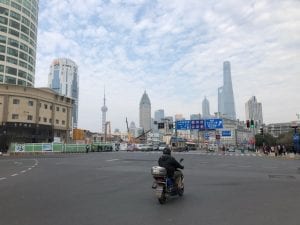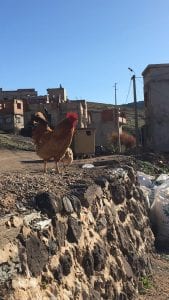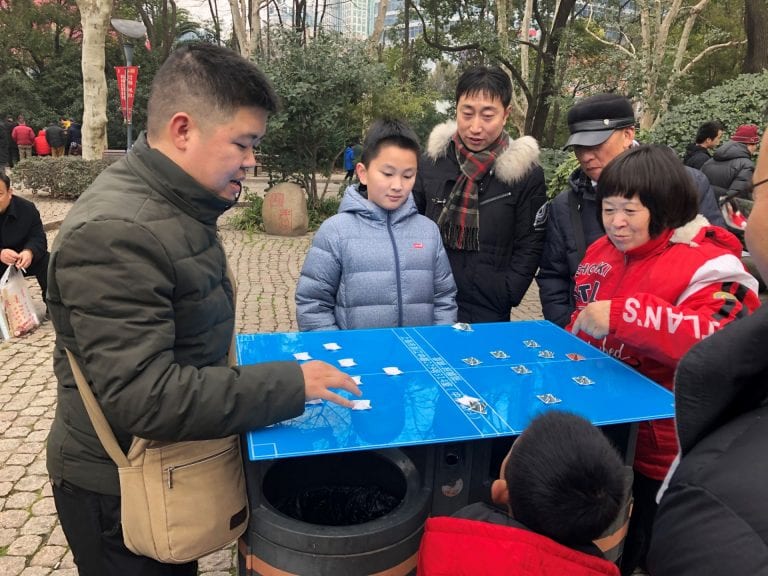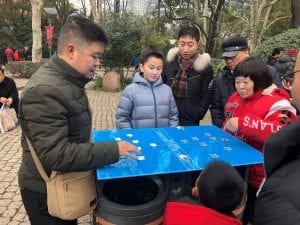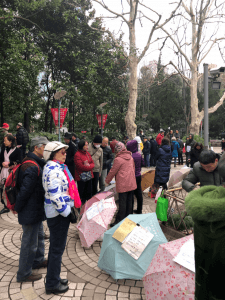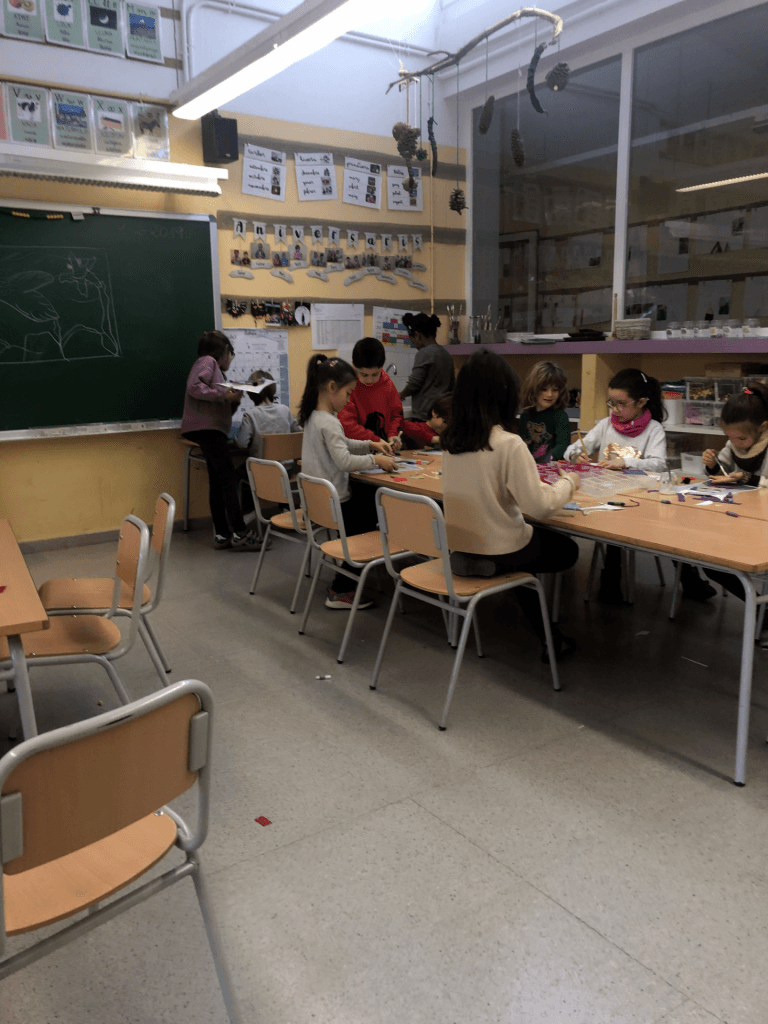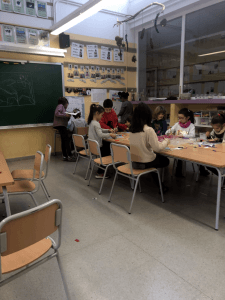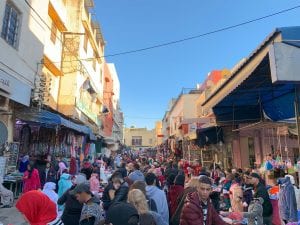I am officially back in the United States and all I can think about is the home and life that I created in Barcelona. Being back has been different, and I feel as though there is a lot to be done, but I am still trying to get through the clutter of jet lag and figure out where to start. Processing this entire experience has been hard, especially with these last four months feeling so unreal. I've spent the last four months volunteering with kids who know nothing about the world I come from, and some of them could hardly even imagine it. I go to an amazing university and have always prided myself on being smart, so it was incredibly humbling to meet 4 and 5 year olds who can speak 3 languages, meanwhile I'm still trying to perfect my Spanish, which I have been learning since elementary school. While abroad, I am so proud of myself for overcoming the language barrier. My Spanish has gotten so much better, and after awhile, I was no longer afraid to just put myself out there and try to talk. I feel like I learned so much more by just trying, even if what I was saying did not come out perfectly. When I get back to GWU, I do want to continue this kind of work and service, so hopefully I am able to find some type of volunteer work with kids that will work with my schedule. Barcelona taught me so much and it gave me so much, and I can't wait to give back.
Category: Commitment to Community
Just Another Volunteer
Yesterday, my host mother politely asked me if it was possible that I move into the guest bedroom during my last two days in the program. She told me that an IES Rabat summer exchange student will be beginning his or her program those two days before I leave, and he or she will be moving into my bedroom. After all that my host mother had done for me, of course I said yes. But I would be lying if I said it didn’t sting a little. For the past five months I’ve felt as if I was someone special in my homestay. Like I was a part of the family. Like I was her son.
And I still was. My host mom packed me lunches, changed my sheets, and would cook cous cous in the masses for me to share with her and her five actual sons. I was a part of the family, but in a week, I would be going. Replaced by another IES Rabat exchange student in my final days. To be completely honest, I felt slightly annoyed that I would be moving out of my bedroom to make way for my replacement. Sort of like when the youngest child realizes that another baby is on the way; I couldn’t help but feel jealous.
I went for a walk later that day, taking my usual route. I said labas to my hanout man who appropriately smiled back with an L’Hamdulillah and a free Snickers. I walked along the beaches, dabbing up Nabil who urged me to throw on a wetsuit, “The waves are green, not white today, brother.” Even Abdessamad (the youngest of my five host brothers) was out on his motorcycle, screaming khouya at me as he sped by. (Abdessamad spoke no English or French. We communicated through slap-boxing. He was immense, gigantic, capable of fits of cosmic anger, sitting at the world’s border, doing his night watchman’s job. He was an Assas).
It all hit me so quick. There’s going to be a new kid moving into my bedroom. My bedroom. Suddenly, this community that I had worked so hard to become a part of was all going to be gone within a week. Where I lived, I could lose any cop through the nooks and crannies of the medina, I could show you all the best street food spots, and I had made enough friends in the medina to build a football roster. And as of yesterday, I was being reminded that I was just another study abroad student in a homestay that moved exchange students in and out like a freshmen dorm. Yeah, it stung a little.
So, what does this all have to do with my service experience in Rabat. For starters, maybe volunteering is just masturbation. Maybe volunteering is meant for the volunteer to pat themselves on the back for the work that they’ve done, and then return back to the States to proceed with their daily lives. After all, next week I will be replaced by another study abroad student who may also be coming to Rabat with bright eyes, hoping to improve the community through various acts of service. How many exchange students were there before me who volunteered in Rabat?
Yeah, I know. I sound angry. More so like a jealous boyfriend.
Maybe Mr. Healy was right. “Never write with jealousy.” But to that I’d say, I don’t think I’m jealous, I honestly think I’m just writing with sadness. Sad that I’m going to have to leave soon. My previous blog posts speak for themselves. I taught English classes, planted trees, cleaned the beaches, took care of orphaned cats and dogs, helped the homeless, and wrote research papers. However, despite my sad, angry, and jealous state I’m about to contradict myself: those acts weren’t for the benefit of my own self-esteem. If anything, by committing myself to service in Rabat I became closer with the people in the community more than I ever could’ve believed when this program began.
Of course the people of Rabat have gotten used to American students living in their city and devoting themselves to service, but it’s not like they viewed the work that was being done as any less. I’m marginal enough in this city as it is. If anything, volunteering was a mechanism for inclusion, for friendships, and for being accepted into the family. Through the acts of service that I had done, I had demonstrated to the people of Rabat that I didn’t see their home as just another Arab/Muslim country (or “Sandbox” as a stranger had so politely put it). When I taught English or picked litter off the street, I was showing that as an American that comes from a privileged world, I see the beauty in their sandstone streets, and their thundering minarets. I see the preciousness in their religion that calls the country together, or their cous cous fridays that calls families together. The long periods of idleness, the frustrations, the wish to drink out in the open, I loved it all, and I was a part of it all!
At the end of the day, the most important act of service that I had done was showing that I loved Morocco, and that I loved Rabat, and that I loved every face hidden behind the hood of a djellaba.
I cared. And yeah it sounds corny, but if anything, it’s arrogant of me to believe that I will go down as the greatest volunteer Rabat had ever seen. It’s inevitable that I will be forgotten in time, but I’m okay with that. I know that the volunteer work that I had done had made a lasting impact on the friends that I made, because I saw the true value of Rabat. And as a result, I saw the true Rabat.
Maybe that’s the whole point of volunteering. I don’t know.
The Final Stretch
My time abroad is quickly coming to a close and I am feeling very confused about it. I am excited to be returning home to my friends and family, but I am already missing the home that I have created and found here in Barcelona. Volunteering has helped me see Barcelona from a different perspective, and although my schedule with classes can be hectic, I love being able to squeeze in the time to do something that matters to me. Studying abroad is a privilege, and I live in a country that has created walls and boarders, blocking people from the opportunity of creating better lives for themselves, and here I am, in Europe, in a different country nearly every weekend. This experience has been eye-opening and has truly made me face privileges that I was not even aware that I had. I am proud of acknowledging that because in a world where I constantly feel as though I am a minority and I know the struggles that I face because of that, I had to step back and realize that there are people who really do have it worse than me, and that there is so much for me to be grateful for. I feel like working with these kids has shown them that the oh so amazing life that I live in America is not far off from theirs, and that if I am able to do something like study-abroad, they can too. Volunteering has greatly enhanced my study abroad experience because it put me in a position to interact as a local, not just a tourist. Volunteering placed me into someone else's world, and it gave me an opportunity to see life from their eyes. Although my study abroad program is not over quite yet, one way that I plan to continue showing my commitment to my community is by helping other students from backgrounds similar to mine realize that studying abroad is something that they can do, and helping them achieve that.
My Dinner with Foreign Service Officers
I cannot believe that I am at the tail end of my abroad program. I’ll never forget my first week of orientation and thinking to myself, “This is going to be the longest semester of my life.”
It wasn’t.
When your weekday is filled to the brim with classes, cultural immersion activities, work, and surfing, it is easy to lose track of the months. But here I still am, writing to you about my service experience that has been so prominent throughout my semester abroad.
The first half of the semester I felt as if I properly committed myself to the community of Rabat through various acts of service. I worked with the poor, became a role model for children, cleaned the beaches and ocean, planted trees, and took care of homeless cats and dogs. The service that I did spanned an array of activities that all came with immediate gratification, where I saw first hand how my actions helped the community. While this was of course rewarding [in that I felt more connected with the people of Rabat] I wanted the second half of my community service journey to focus more so on the long-term affects of service. This comes in the form of research, and I’ll explain why.
Outside of school, I intern at the Moroccan Institute for Policy Analysis (MIPA). This job has been a blessing, and has provided me with so many opportunities. One of which was meeting consular officers from the U.S. Embassy and U.S State Department in Rabat. I was invited to have dinner with a few U.S. State Department foreign service officers, and at the dinner table we discussed the world of foreign service and the work that they did. I asked one officer named Ryan (who everyone called “The Boss”) if he could see the physical results from the work that he and his colleagues were doing.
“Maybe there is a paper I wrote that will help the Moroccan government in the next decade,” he responded, with a smile.
He then proceeded to explain how when you commit yourself to foreign service, specifically in the world of public policy and international affairs, you sacrifice feelings of instant gratification. However, That doesn’t mean that the work you’re doing is any less fulfilling. It just means that it takes a longer process for your work to be recognized, implemented, and then impact the community. Whether it is a paper on the importance of feminism, the hidden LGBTQ community in Morocco, the reception of western media, or the flow of innovation through trade; all research, essays, and studies done are meant to aid the Moroccan community in the long-run.
During the second half of my program I have committed myself to long-term forms of service. Through my internship at the Moroccan Institute for Policy Analysis, I have conducted thorough research on the topic of the acceptance of Islam in the western world. I believe that I have a very unique perspective on this issue, having many Moroccan friends with pretty radical views of the United States and democracy. I draw connections between isolationism to radicalism among young Muslim men, and I also critique American and European cultures for isolating Muslim communities. My paper will be published at the end of the semester on the MIPA website, and I hope that in the long-run my work will be cited, shared, praised, debated or even rebuked. Regardless, I know that I will not see the immediate effects of my work, like my physical acts of service, but I hope that my paper will serve the community of Rabat long after my return back to the states.
A (sort of) American Abroad
I didn’t realize how distinctly American I was until I began my study abroad experience in China. I knew I was an outsider when I was walking through YuYuan Garden and was met with deadlock stares. I was aware that going crazy in arcades garnered the stares of people who did not realize that the avid arcade culture is something that is unique to China. However, this became especially apparent when I began my classes at Fudan University. There is something unique about the way that American students perceive their presence within a classroom that can be categorized under the characteristics that seems to define all Americans abroad: loud and obnoxious.
YuYuan garden during the day (left), when entry costs around five dollars a person. The same garden area during the annual lantern festival, this year in celebration of the Year of the Pig. Pig decor and memorabilia are especially common in Shanghai this year!
On my first day of class my friends and I arrived at Fudan University fifty minutes before class began, purely driven by first day nerves. What could barely be defined as a crowd of American students, three or four at best, had now become the sole source of noise in the hallway outside the classroom. We complained about the commute, passionately expressed our interest in acquiring breakfast, and constantly messed with the touch screen tablet that is stationed outside every classroom. Putting it not so delicately, we were being loud and obnoxious. Enter another foreign exchange student, headphones in, eyes averted to the ground, clearly not in the mood to talk. Naturally, we asked her what her name was and where she was from. When she responded that she was from the Netherlands and returned the question, four scattered and equally jarring voices responded “America!” She then did what most people do when they see a crowd of loud and obnoxious foreigners: she smirked, nodded mockingly, and said, “yeah I figured.”
Fudan University in Shanghai. This is one of Fudan’s two campuses, were most of my classes take place. Students enjoy many locations to relax within the traditional campus setting.
That was an interesting experience for me, to say the least. I had never identified myself as an American. According to my passport, I am not. However, there is a level solidarity that I now feel with my classmates. Regardless of our own cultural backgrounds, we had all been somehow influenced by our time in America; it effected our behavior, our mindsets, and the way we viewed our responsibilities as students. American students are more rambunctious, both in their behavior and their academic ideas.
(From left to right) A Chinese vintage store in Tianzifang, Shanghai. One of the many gigantic arcades located around the city, this one was also in Tianzifang. “Fried Ice-Cream” from a small fried foods stall across the street from our apartments. These turned out to be fried deep purple balls of custard and not ice-cream at all. They were still absolutely delicious!
This became clear to me in my business class. When asked to pitch a technological innovation that would improve student life, there was a clear division of groups: Americans and other foreign exchange students. The American students went wild, we pitched a cafeteria app that would eliminate language barriers, account for dietary restrictions, and even tell students how busy the cafeteria was before they got there. Ambitious, as expected, but also, as our teacher explained to us, very difficult to implement and coordinate. The other group came up with a feasible library cataloguing database for which the technology was readily available. The teacher loved it.
This made me question whether or not this blind ambition was beneficial to us as students. Perhaps it would be better to stick to safer options. I have come to the conclusion that neither option is superior, they are just starkly different. They are reflections of the diversity of human thought, traditions, and culture. My academic experience has been opening me up to facets of educational practice, student culture, and social etiquette that differ drastically from what I am used to. I am very excited to dive into this new type of student life and gain different perspectives on what I had previously understood as the accepted order of things.
Two incredible views of Shanghai. The first is from my apartment (left) and the second if from the YuYuan Garden metro stop (left) which is the starting point of our forty-five minute commute to Fudan University.
La Vida en Barcelona
I am about halfway through my time to study abroad in Barcelona, and I have no idea where the time has gone. I have continued volunteering at the local elementary school called Dolors Almeda and I feel like interacting with the students there has continued to teach me a lot and make Barcelona feel even more like home. For me personally, volunteering has had its moments when it was a little harder due to the current political climate in Barcelona. With the big trial going on and Catalunya wanting its independence from Spain, there have many protests and demonstrations throughout the city. This causes a great impact on the metro and other means of public transportation, which makes it harder to get around. Also the fact that you never want to get caught up in the protest, so just being extra aware of where you are at all times has become increasingly important. Either way, volunteering has given me a chance to really get to know some of these students, and I think it has helped a lot in terms of their perspective of the United States and what it means to be American. With the students being so young, a lot of them have very big and grand ideas on what the United States is and it is so funny to hear the things that they associate the United States with the most. I feel like I've been able to give them more and more information on a place that a lot of them hope to go and visit one day, so I really hope that it lives up to what they are expecting. I also think that volunteering with these students has changed the way that some of their parents look at and see Americans. I feel like there are a lot of stereotypes surrounding Americans and this idea that we come here just to enjoy the beauty of their home without really getting to know it and contribute to it, and I feel like me coming in and helping teach their children and me trying to learn and understand their language and culture has truly gone a long way. I am very sad to see time going so quickly because I absolutely love it here, but I am very excited to see what these next two months have in store.
High up in the Atlas Mountains, My Weekend with the Moroccan Amazighs
We travelled four hours by van to the point where the asphalt became dirt, and the dirt became rocks. The van had been rocked side to side, like a boat fighting a storm, teasing a capsize. Lilah was huddled away in the back of the van, stomaching her throw up. Four hours in a van with closed windows and interminable traditional Moroccan music (you know, the heavy drums, flutes, and whistles) made us all a little sea sick.
“It will be worth it in the end,” we were promised.
And it was. L’Hamdulillah.
We were heading into the Atlas Mountains in the east of Morocco. A place on the outskirts of Ifrane National Park, where the typically hot and flat Moroccan terrain became hoards of Atlas cedars casting cold shadows in the already freezing climate. I wanted a jacket. Lilah wanted to puke.
In the heights of the Atlas Mountains was a village called Ben Smim. Our weekend excursion was a cultural immersion experience through a homestay with an Amazigh family in a true Amazigh village. The Amazigh population, also known as Berbers, are the indigenous ethnic group to Morocco, predating the Arab population that came to Morocco centuries later. They are often left out of the political system in Morocco, forgotten in the Moroccan mountains, where they reside in rural villages and towns with poor infrastructure, and less job opportunities. But that doesn’t make them unhappy. If the lack of economic benefits made them unhappy then they wouldn’t have greeted the incoming students with a traditional Amazigh concert and dance party! We were swarmed by children and hugged by mothers. We couldn’t speak their language, and they couldn’t speak ours, but never before has language been so unimportant. It’s amazing how quickly humans can bond through the words “Eat,” and “A lot.”
My roommate, Noah, and I fell asleep on our couches to the howls of dogs, and we awoke early in the morning to the cries of roosters. Animals were key to every household in Ben Smim. Almost every family owned a couple chickens, a cow, and maybe a cat or dog. Most of the food prepared came from the animals that the family had owned or from whatever the neighbors were willing to sell. And even though the economic conditions were weathered, each morning and each night Noah and I were presented with plates of the most delicious, farm-to-table meals.
It was a no-brainer when we were asked if we wanted to give back to the community. When they would provide for us, the Amazighs of Ben Smim asked for nothing in return. So when we began planting a garden in their one elementary school, we were thanked graciously. A number of us took it into our own hands to organize a soccer game with all the local children. I was shocked when an audience came about to watch the Moroccans face off against the Americans. It was a fun day filled with giving back to the Amazigh people.
However, the acts of service I wanted to do involved truly giving back to the community. I wanted to repair houses, pave the roads, and fix street lamps. It took a hearty dinner of laughs and bad Arabic for me to realize that the Amazigh people of Ben Smim didn’t need our help. They were happy just to host us. In the future, a true act of service that I know I will commit to would be to spread the history, culture, and problems of the Amazigh people. I want to share the stories of my host mom her husband and their two children. I plan on lending my voice to theirs, making their voice louder, to hopefully make them heard in Moroccan politics, and around the world. This blog post isn’t a bad start: https://www.aljazeera.com/indepth/features/2014/03/moroccos-berbers-urge-broader-reforms-2014357321228806.html
An Ancient Sense of Community
The first thing you notice when you touch down in Shanghai is the complete lack of personal space. I say this as someone who is usually comfortable cramming into a packed subway car in Manhattan. We were warned of this cultural difference before we left for the semester, but there is nothing quite like experiencing it for yourself. What I’ve come to realize, however, in the last few days that I have been in China, is that this cultural difference is actually one that forces you headfirst into the local community. The people in Shanghai live in a level of comfort with each other that I have never experienced in any of my travels. There is unique a sense of camaraderie and tradition that the entire community adheres to. The ancient cultures and practices that are the foundations of Chinese life are clearly ingrained in every individual I have come across in my short time in Shanghai.
On our scavenger hunt we came across an adorable woman leading a board game in People’s Park and we were all enamored by her charisma. Although we didn’t understand the game, we were positive she was winning.
An amazing example of this sense of community is the Shanghai marriage market in People’s Park. We experienced this practice firsthand on one of our initial activities as a cohort. The Shanghai marriage market is a tradition that has been going on for generations. Essentially, parents gather around in the “blind corner” of the central People’s Park, and hold a sort of showcasing for their unwed sons and daughters. On opened umbrellas, advertisements can be seen boasting good looks and successful careers, as the actual bachelors and bachelorettes are nowhere to be seen. This practice is a clear indicator of the tradition and culture surrounding marriage in China. Parents see it as their duty and right to make sure that their children find the perfect match. This is a very traditional practice that makes me thing of the way marriage is viewed in India as well. I find it so interesting that ancient cultures can bring their value systems into the 21st century unbothered by the global culture of the modern era and pass these traditions down to their children. This is very clear in Chinese culture and I look forward to discovering more of Shanghai’s hidden cultural gems in the months to come!
The Shanghai Marriage market was such an interesting event to walk through. Parents swarmed us to find out if we wanted to marry their children and even pulled out pictures to show us and convince us to say yes. It was definitely a memorable sight.
Gracias!
L’Hamdulillah! The Beginning of my Community Service Journey in Rabat
Labas? Labas L'Hamdulillah!
How are you? Good, Praise be to God!
It was an exchange I made with almost every Moroccan on the street. Whether it was my host dad, my professors, or my hanout guy, it wasn't uncommon to say L'Hamdulillah after almost every greeting. At first I felt like I was appropriating a culture, a culture that I was new to. I was a foreigner still, with a target on my back for all the merchants and vendors to try and scam me out of a few Dirham. But I was assured by almost everyone in Morocco that speaking Diriga (their country's dialect of Arabic) was necessary if I truly desired complete immersion and inclusivity. Everyone says l'Hamdulillah proudly because it ties together a love for country, Islam, and family. After I sneeze. l'Hamdulillah! The food was amazing. l'Hamdulillah. Barça beat Real. l'Hamdulillah!
l'Hamdullilah! l'Hamdulillah! l'Hamdulillah! I loved the phrase. Taxi drivers would chuckle to themselves and politely say it back. My hanout guy would spread his arms out wide and shout it to the skies whenever he saw me. Two Dirhams for a Snickers. "Everything in Morocco is so cheap," I would say, "l'Hamdulillah!" Everyone praised God because there was so much to be thankful for. Healthy families, good weather, and cheap foods. As a student from the States, Morocco seemed too good to be true. My first week in the country was otherworldly, l'Hamdulillah! Only, it took the novelty to wear off for me to realize that not everything was good food and colorful markets. My daily walk to the IES Center took me through the markets of the old Medina. Day in and day out I would make the thirty minute walk, breathing in salted cod and drying clay. The sights of the colored scarves in storefronts dancing in the wind, and the banners of makeshift umbrellas reflecting vibrant colors over the sandy paths made for a distracting spectacle. So distracting that I never noticed those in the shadows, tucked away behind the crowds of people hoping for a few Dirhams to be tossed their way. If everything was so cheap then why were people so hungry. If you maneuvered yourself through the hagglers, and sidestepped the future football stars of Morocco, then you would see that the beggars and the homeless were disabled, handicapped, and ill.
In my IES program I am a member of the after school Service Club. Our first meeting is next week, and we are supposed to bring in ideas on how to improve the community in Rabat. My experience so far in Morocco has shown me that there is much deeper socioeconomic issues that are facing the country. I hope to pitch my idea to help the handicapped, disabled and homeless on the streets of Rabat to my service club and hopefully rehabilitate those in poverty.
One day, on my daily walk home from school I passed by a paraplegic man, begging on the ground. Unsure of how he would react knowing that I was a foreigner, I slipped him a ten Dirham coin. "l'Hamdulillah," he smiled.





